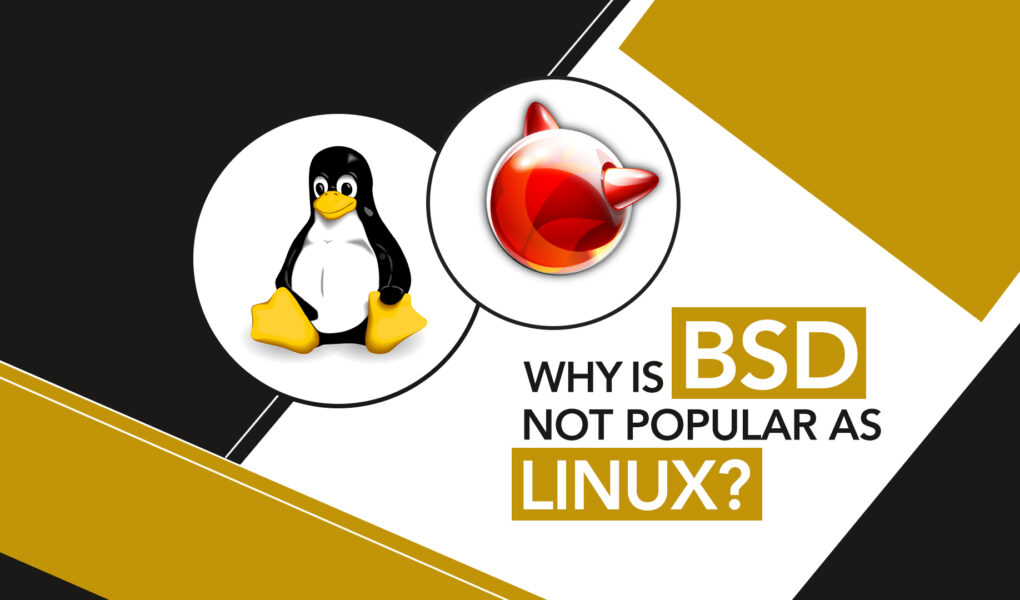Operating systems play a crucial role in our daily lives, providing users with powerful and flexible platforms for various computing needs. While Linux enjoys widespread popularity and usage, another robust and versatile contender, BSD, seems to have been left in the shadows. But why is this the case? Why is BSD not as popular as Linux, despite boasting a rich history and offering numerous benefits? Continue to read as we discover the factors that contribute to the differences in popularity between these two operating systems.
The origins
BSD has its roots in the 1970s, originating from the Unix operating system developed at AT&T Bell Labs. It was later adapted and distributed by the University of California, Berkeley, hence the name Berkeley Software Distribution.
On the contrary, Linux was created by Linus Torvalds in 1991, serving as a cost-free substitute for the Unix operating system. Linux quickly gained momentum and a dedicated community, leading to the establishment of numerous distributions catering to different user needs.
Factors contributing to Linux’s popularity
1: Licensing
One of the primary factors contributing to Linux’s popularity is its licensing model. Linux employs the GNU General Public License (GPL), mandating that any alterations to the source code be made available under the same license. This promotes a collaborative environment where developers are encouraged to share their contributions with the community.
In contrast, BSD uses a more permissive license that allows developers to modify the source code without releasing their changes. While this offers more freedom, it can also lead to fragmentation and limited collaboration, which can hinder the growth of the operating system.
2: Industry support
Linux has garnered significant support from major industry players, such as IBM, Red Hat, Google, and Intel. This backing has helped propel Linux into the mainstream, making it the go-to choice for various applications, including servers, embedded systems, and even desktop computers.
On the other hand, BSD has not received the same level of commercial backing, which has limited its growth and adoption.
3: Application and software compatibility
Linux enjoys a vast library of applications and software, with developers constantly creating new programs and tools for the platform. In contrast, BSD has fewer applications and software available, which can make it less attractive to users who require specific programs or tools for their computing needs.
4: Community support and development
Linux has a large, active, and passionate community that contributes to its development and growth. The vibrant ecosystem surrounding Linux provides ample support and resources for users, including forums, documentation, and tutorials.
BSD, while having a dedicated user base, suffers from a smaller community in comparison to Linux. This results in fewer resources available for new users, which may contribute to the perception that BSD is less accessible and harder to use.
Challenges faced by BSD
1: Hardware support
Linux enjoys broad hardware support, thanks to the backing of major industry players and the large community of developers. Contrarily, BSD tends to trail behind when it comes to supporting hardware, especially the latest devices. This could pose challenges for users trying to install and operate BSD on their systems.
2: Limited commercial backing
As mentioned earlier, BSD lacks the same level of commercial support that Linux enjoys. This has led to fewer resources being allocated to BSD development and promotion, which in turn has contributed to its limited popularity.
3: A smaller community
The smaller BSD community, compared to Linux, means fewer resources, tutorials, and user support are available. This can make it harder for newcomers to adopt BSD and learn the intricacies of the operating system.
Conclusion
Although Linux has garnered significant popularity due to its diverse range of distributions, strong community support, and corporate endorsements, BSD has not experienced the same level of prominence. Nevertheless, it is vital to acknowledge that each operating system caters to distinct use cases and user preferences, and BSD possesses its own set of advantageous features that make it a worthwhile option to explore.



